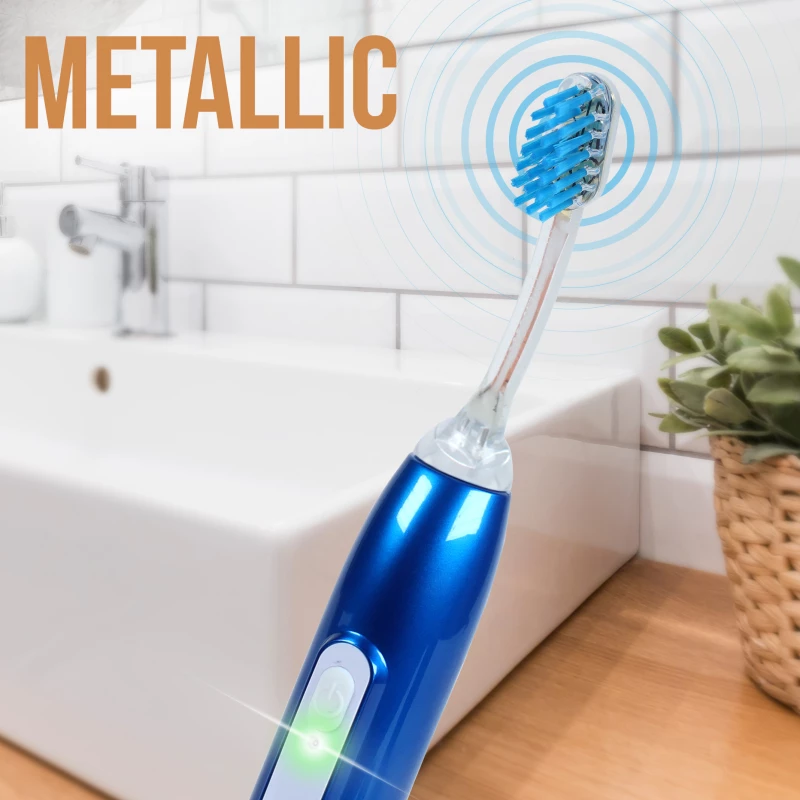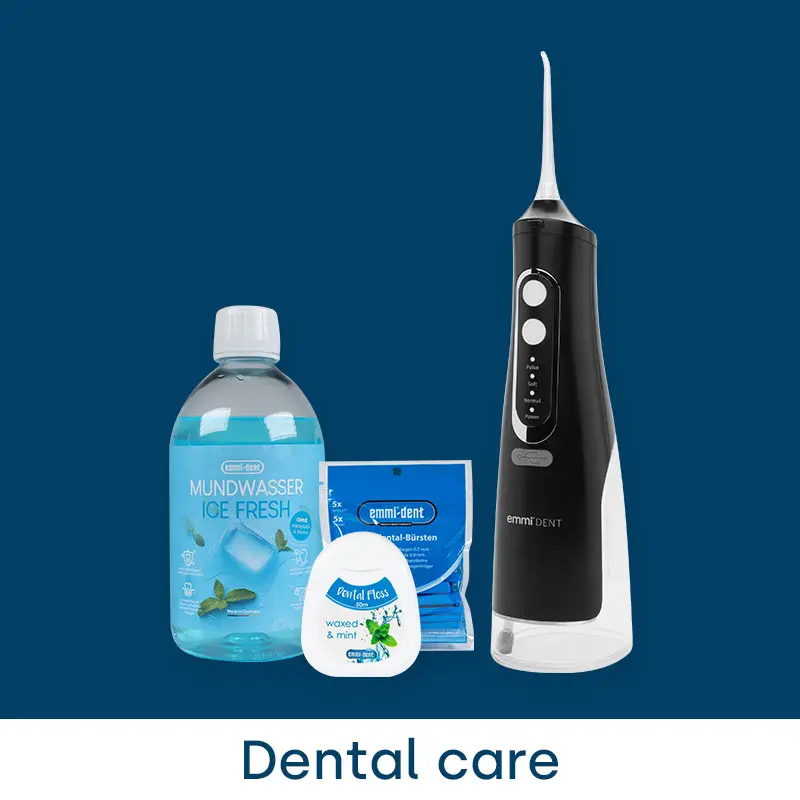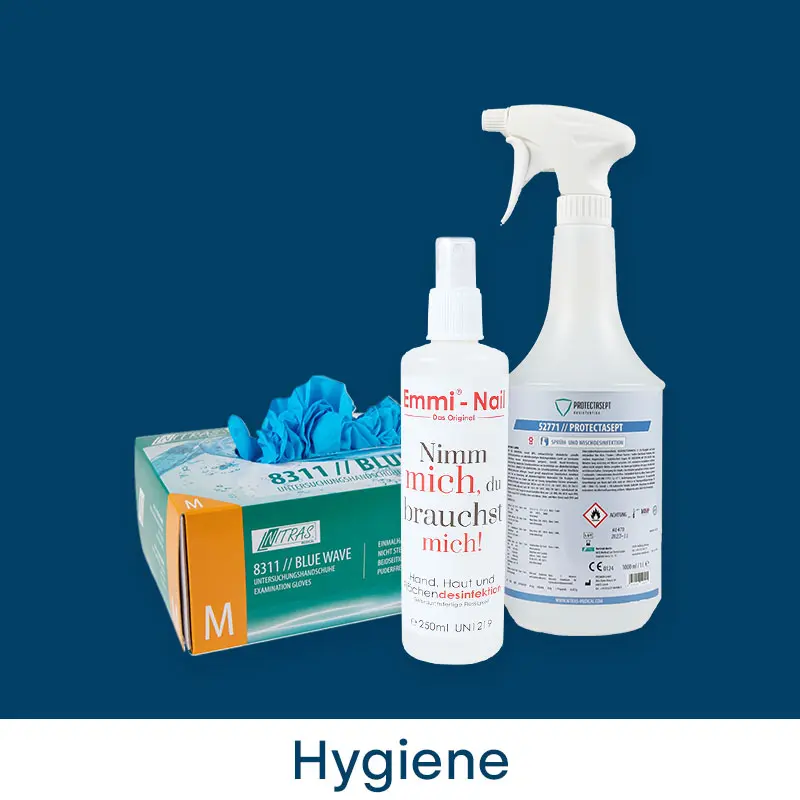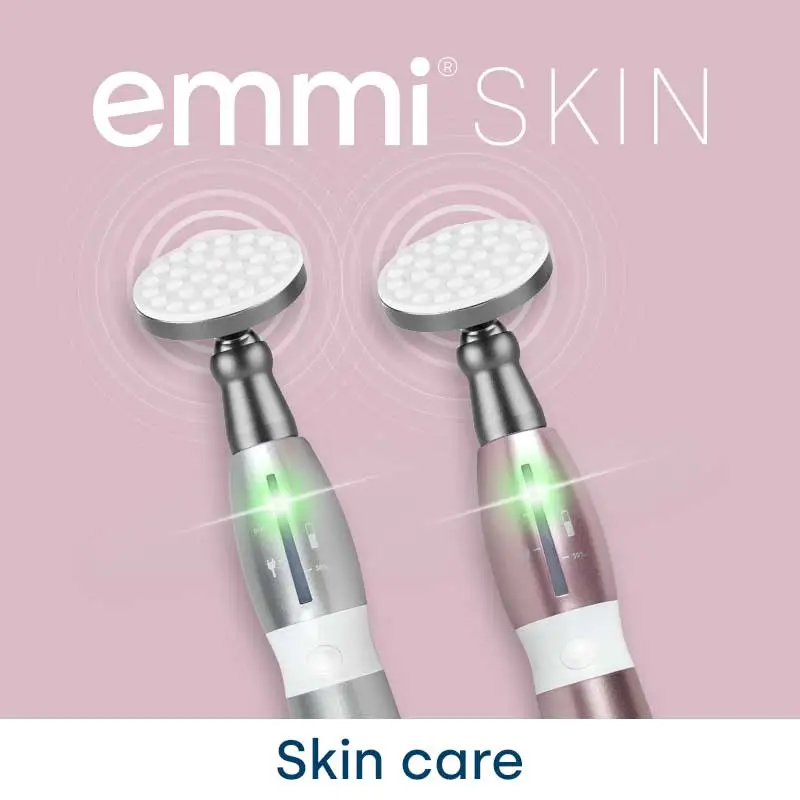
Teeth that are sensitive to heat or cold can make life very difficult teeth that are sensitive to pain are a widespread problem, but there are numerous ways to alleviate the discomfort. In this article you will find out which home remedies can help with toothache and what you can do if the tooth necks are exposed. Because it is often precisely these exposed tooth necks that cause pain.
The most important facts summarised in advance:
Sensitive teeth can be caused by exposed tooth necks and often react sensitively to heat or cold.
There are several quick and easy solutions to relieve pain, including using toothpaste for sensitive teeth, fluoride treatments and switching to a soft toothbrush.
A healthy diet and avoiding acidic foods can help to reduce tooth sensitivity.
There are special mouthwashes for sensitive teeth, as well as sealants and fillings that can be used by a dentist.
Regular dental check-ups are essential to maintain oral health and to recognise and treat dental problems at an early stage.
Understanding teeth that are sensitive to pain
To better understand the phenomenon of sensitive teeth, it is important to know that they are often caused by exposed tooth necks and toothache. However, you can significantly alleviate the discomfort with a few tips.
It is advisable to avoid acidic foods and instead focus on a tooth-friendly diet. If your teeth hurt badly, a visit to the dentist is essential. The necks of your teeth may be exposed and need to be treated. With regular check-ups, such problems can be recognised and treated at an early stage to prevent permanent toothache.
In any case, it is important to pay attention to your personal perception of pain and act accordingly. After all, healthy teeth are an important part of our well-being and quality of life.
What causes tooth sensitivity?
In the context of the question of what could be the trigger for pain-sensitive teeth there are various factors to consider. Tooth sensitivity often results from exposed tooth necks or receding gums. Small cracks in the enamel or an inflamed tooth root can also cause painful teeth.
If you suffer from sensitive teeth, using home remedies can provide temporary relief. However, it is essential to see a dentist if the pain persists or worsens. Only a professional can determine the cause and treat it accordingly.
To protect your teeth, make sure you eat a healthy diet, prioritise oral hygiene as a daily ritual and schedule regular check-ups with your dentist. It's better to take preventative measures than to struggle with severe toothache later on.
How temperature changes cause pain
Changes in temperature can cause severe discomfort for people with teeth that are sensitive to pain. The cold of a cup of ice or the heat of a hot drink can trigger pain that radiates directly into the dental nerve. But why is this the case?
Exposed tooth necks are often the main cause of such pain. Normally, the necks of the teeth are covered by gums. However, when this recedes, the tooth necks are exposed and are susceptible to temperature fluctuations. The enamel covering the upper part of the tooth provides no protection for the tooth neck. Therefore, heat, cold, sweet or sour foods can act directly on the tooth nerve and cause pain.
Home remedies can only help to alleviate the discomfort in the short term. If the pain persists, you should definitely consult a dentist .
7 quick and easy solutions
Seven quick and uncomplicated ways can relieve toothache especially in the case of exposed tooth necks.
Fluoride mouthwash: Strengthens tooth enamel and reduces sensitivity.
Special toothpaste: Toothpaste for sensitive teeth contains ingredients that reduce pain.
Tooth protection while sleeping: Prevents teeth grinding at night, which can lead to tooth decay.
Healthy diet: Avoid acidic foods and drinks that attack tooth enamel.
Gentle toothbrush: A soft toothbrush protects the gums and prevents them from receding.
Flossing: Regular flossing keeps the gums healthy and prevents them from receding.
Regular visits to the dentist: Early detection and treatment of problems prevent long-term pain.
However, please note that these tips are no substitute for professional advice from a dentist. If symptoms persist, you should definitely consult a dentist.
1. use of toothpaste for sensitive teeth
When dealing with sensitive teeth, the right toothpaste is crucial. It can relieve toothache and help to prevent further damage to your gums and your teeth . For painful areas it is advisable to use a toothpaste that has been specially developed for sensitive teeth. These contain active ingredients that seal exposed tooth necks and block pain signals.
It is also advisable to pay attention to toothpastes with essential oils. They can help to soothe the gums and reduce inflammation. Despite all tips however, the following always applies: If the pain persists, you should definitely visit a dentist.
This article only gives you an initial overview, because every tooth is individual and therefore also requires individual care.
2. fluoride treatments
Treatments with fluoride are an effective way to counteract pain-sensitive teeth . Fluoride strengthens the teeth by reducing the loss of minerals in the tooth surface and forms a protective layer that protects the teeth from the penetration of acids. For exposed tooth necks fluoride treatment can help to reduce sensitivity and prevent tooth decay.
One of the most effective home remedies for toothache is the use of fluoride rinses or gels, which help the enamel to regenerate. However, these cannot be used as a substitute for a visit to the dentist especially if the teeth are very painful. If the pain persists despite fluoride treatment, it is advisable to consult a medical professional.
In conclusion, it is essential to maintain a balanced diet, regular dental care and regular visits to the dentist for optimum dental health.
3. change to a soft toothbrush
If you suffer from pain-sensitive teeth switching to a softer toothbrush and our emmi-dent ultrasonic toothbrush could be a good choice. The hard bristles of conventional toothbrushes can damage the gums leading to exposed tooth necks and increased sensitivity to pain. Soft toothbrushes are gentler and can help to relieve toothache.
If the pain persists or worsens, you should see a dentist. You may need special treatment that only a dentist can provide. Even if you are on holiday and suddenly have toothache don't hesitate to visit a local dentist. your dental health should always come first!
4. avoid acidic foods
To protect teeth that are sensitive to pain, it is advisable to limit the consumption of acidic foods. Acid can attack the teeth and cause additional pain if there are already problems, such as exposed tooth necks. Targeted avoidance of acidic foods can provide an effective remedy here and improve the condition of the teeth.
It is therefore important to review and adjust your eating habits. Foods such as citrus fruits, tomatoes and soft drinks contain a lot of acid and can increase the sensitivity of your teeth to pain. A good guide can help you recognise acidic foods and find alternatives.
5. mouthwashes for sensitive teeth
If you suffer from pain-sensitive teeth mouthwashes specifically for sensitive teeth can be an effective solution. They have a soothing effect on exposed tooth necks and painful areas and can significantly reduce sensitivity to pain. It is important to use a mouthwash containing fluoride and essential oils, which have a soothing effect on the gums.
They also help to strengthen the enamel and thus protect the teeth against pain. Having a toothache on holiday is terrible. It can therefore be a good idea to include mouthwash as a preventative measure in your daily dental care routine. If the pain persists, you should visit a dentist.
6. sealants and fillings
Dental fillings and sealants are effective measures to treat pain-sensitive teeth and protect them from further damage. For painful areas or exposed tooth necks a dental filling can be used to seal the affected area, preventing the penetration of bacteria and reducing sensitivity to pain. A special material that is very similar to the natural tooth is used for this purpose. A sealant, on the other hand, is usually applied to the chewing surfaces of the molars to protect them from decay.
7. regular dental check-ups
Regular visits to your dentist help to keep your teeth healthy and to recognise sensitive teeth at an early stage. With regular check-ups, your dentist can detect and treat problems such as exposed tooth necks or gum inflammation, which often lead to sensitive teeth. Preventive measures such as fluoride treatments can also help to make your teeth less susceptible to pain.
If you have severe toothache or persistent sensitivity to pain, you should definitely consult a dentist.
Tips for long-term prevention
The first step on the road to long-term pain relief is conscientious oral hygiene. Use a soft toothbrush and do not brush too aggressively to protect your gums. A dental check-up every six months is essential to recognise and treat problems at an early stage.
With fluoride toothpaste and a fluoride mouthwash, you can strengthen your tooth enamel and thus reduce the sensation of pain. Special toothpastes for sensitive teeth can also be helpful. A balanced diet with sufficient calcium strengthens your teeth from the inside. Also try to reduce stress, as this can also have a negative impact on your dental health.











